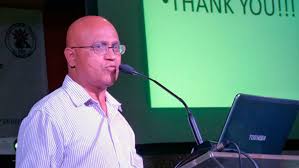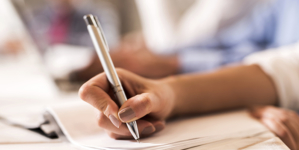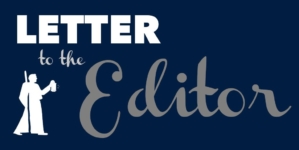India’s role in battle for COVID-19 vaccine
Dear Editor,
INDIA is viewed as the most important global player in the fight against the pandemic, because of its capacity to manufacture a vaccine, and the research of its scientists racing to have ready vaccines to combat the virus. The world is turning to India now, when a few years back they shunned it. And even though its vaccine is not quite ready to be rolled out to inoculate people against the Coronavirus, Indian pharmaceutical companies are the hope for the pandemic world, in particular the developing world of Africa, the Caribbean, Asia, and much of Latin America, since virtually none, other than Brazil, Mexico, and Argentina, are experimenting with producing a vaccine. No African or Caribbean country is working on a vaccine. So they depend on India to make the vaccine available.
Several countries will begin rolling out their COVID-19 vaccine next week, but they depend on India to produce it; billions of vaccines have been ordered from Indian pharmacies. The Indian government itself has ordered one billion indigenous developed vaccines that have not even been rolled out by Indian pharmaceutical companies experimenting with three vaccines in their final stages of trials on large numbers of humans.
There is a strategic global partnership emerging between India and key developed countries on the roll-out of the vaccine, as well as between India and major drug manufacturers in the West on the vaccine development. Scientists from Pfizer, Moderna, AstraZeneca, amd Sputnik V all have an India link for experimentation by Indian scientists. And there is the indigenous Indian BioNTech vaccine expected to be rolled out month end, of which there are also multi orders. Emergency authorisation will be granted to vaccinate people with one of the above. Which is most efficacious will not be known until months after people have been vaccinated.
The three globally-announced vaccines (one each from Germany, the UK and the US) will be ready for roll-out next week, but not in enough doses for any country’s population. (Russia has rolled out its Sputnik vaccine over a month ago, but is also lacking quantity to inoculate its people, and has ordered 100 million doses from India). It will take years before the globe (seven billion people) is vaccinated. There simply aren’t enough vaccines to go around, and manufacturers can’t catch up. Few countries manufacture vaccines; India is the world leader, manufacturing 60 per cent of the world’s vaccines, in addition to supplying vaccines for its 1.35 billion people. Countries will have preference in orders (from India), and within each country, people will be prioritised as to who gets the vaccine. Many countries are turning to India, with billions of vaccines ordered by Europe and North America. Mumbai’s Shivaji International Airport is being readied to handle huge cargo planes laden with vaccines. Naturally, India will attend to the orders of friendly countries first before others. But India has announced that no country will be blanked, regardless of relations with India. Guyana has friendly relations with India, and it is expected to be treated with some deference in gaining access to the COVID-19 vaccine its companies are experimenting with that will be ready by month’s end for roll-out.
Laboratories in India are working on 30 COVID-19 vaccines, with three in an advanced stage of development, and one ready for roll-out by the end of this month, and the other two in early January. The other 27 would be ready later in 2021. Even if ready to vaccinate people end of December or early January, there is the problem of manufacturing, as Indian factories can only produce so many vaccines a day. Pharmaceutical factories cannot be set up that quickly to meet global demand.
The developed world can afford to pay for the vaccine, and have ordered tens of millions of doses each from several of the companies that claim to have workable vaccines. India itself has ordered a billion doses of the one produced by its scientists. The poor countries may not be able to afford to pay for the vaccines initially, and would have to depend on the WHO to pay for it. The WHO gets its funding from the wealthy countries. Eventually, the richer countries will have to pay for vaccines for the poorer countries. India has promised to share the vaccine with poor countries. And the Indian High Commissioner has announced that the Modi government is committed to making the vaccine available to Guyana. The two countries share very friendly cultural relations, with over half of the Guyanese population tracing their roots to India.
Yours truly,
Vishnu Bisram






















